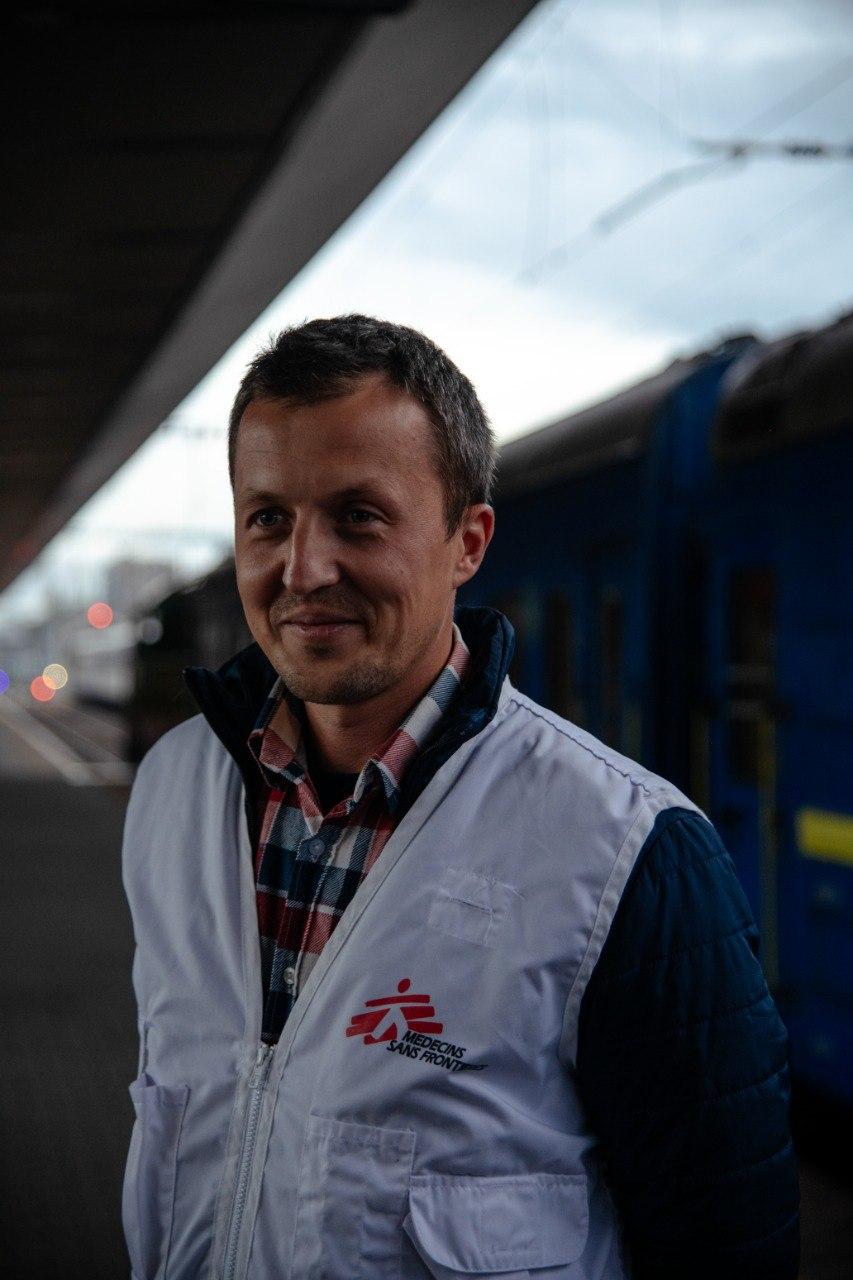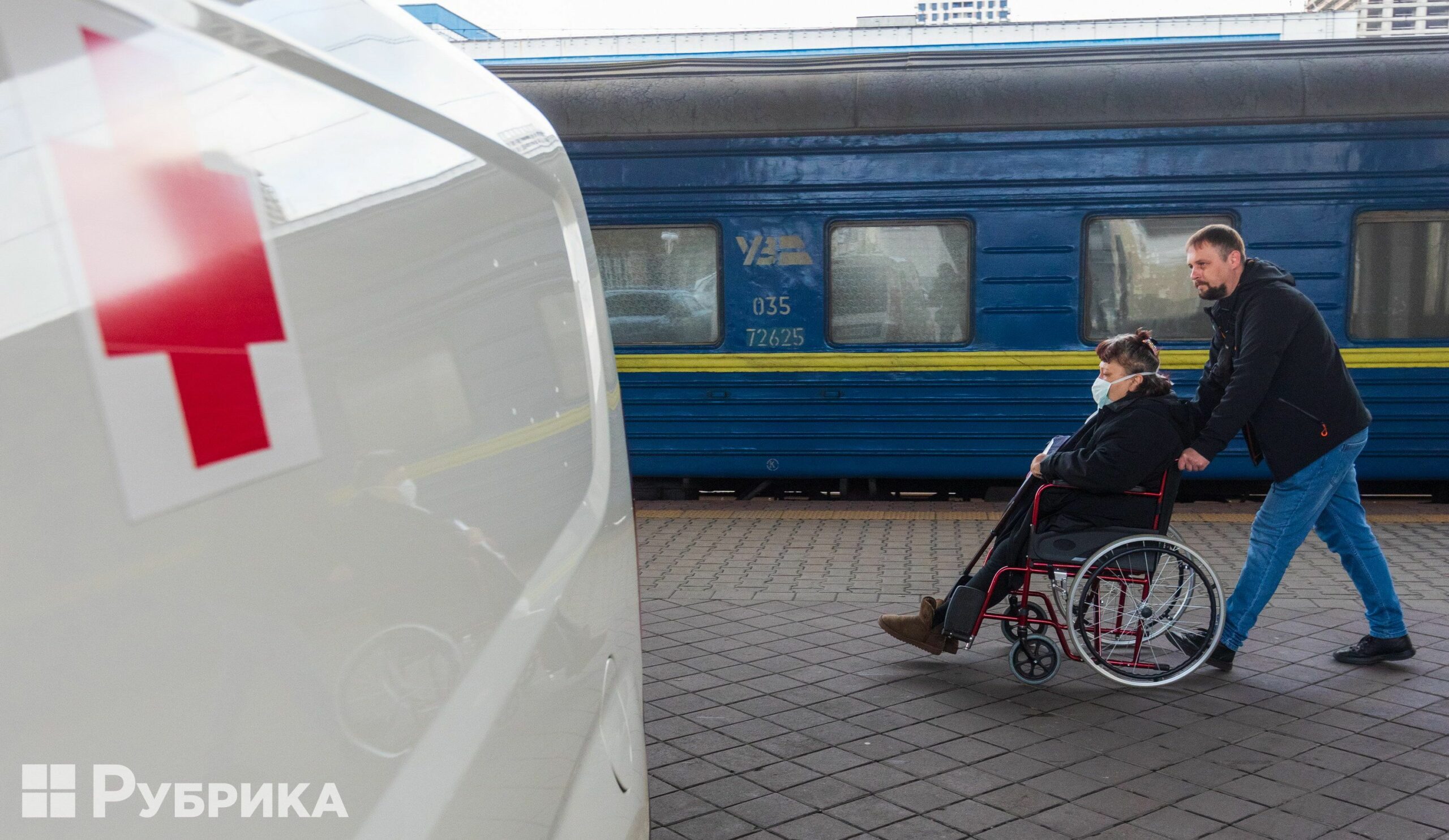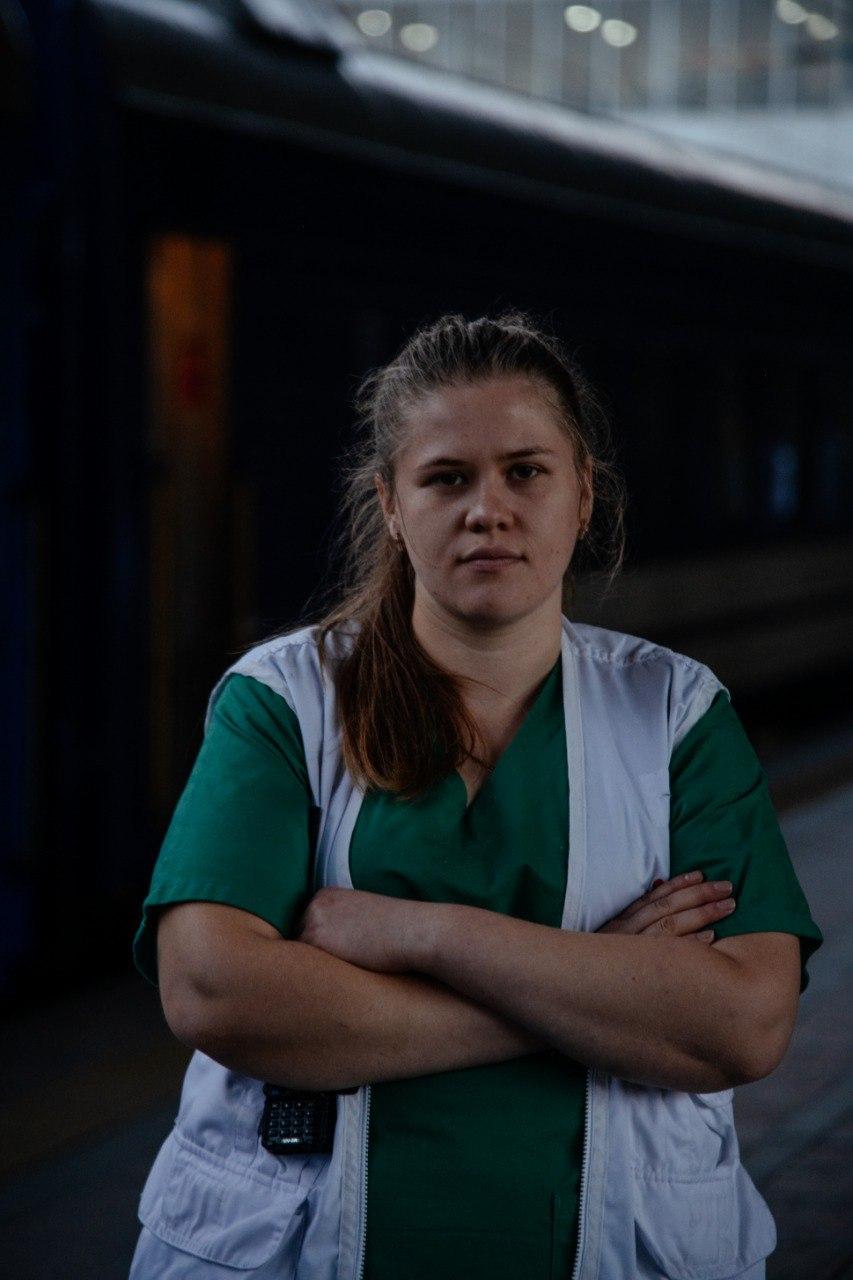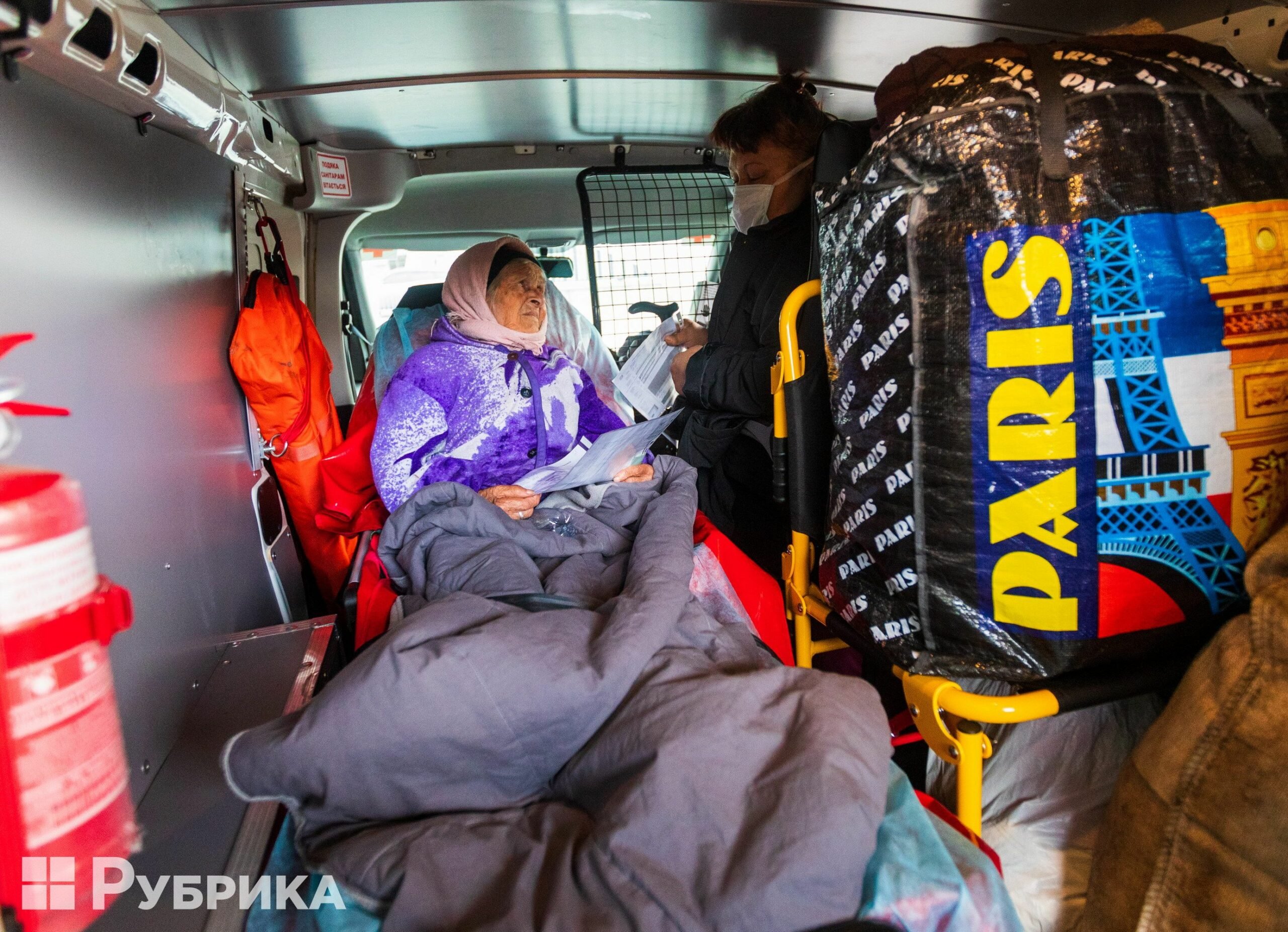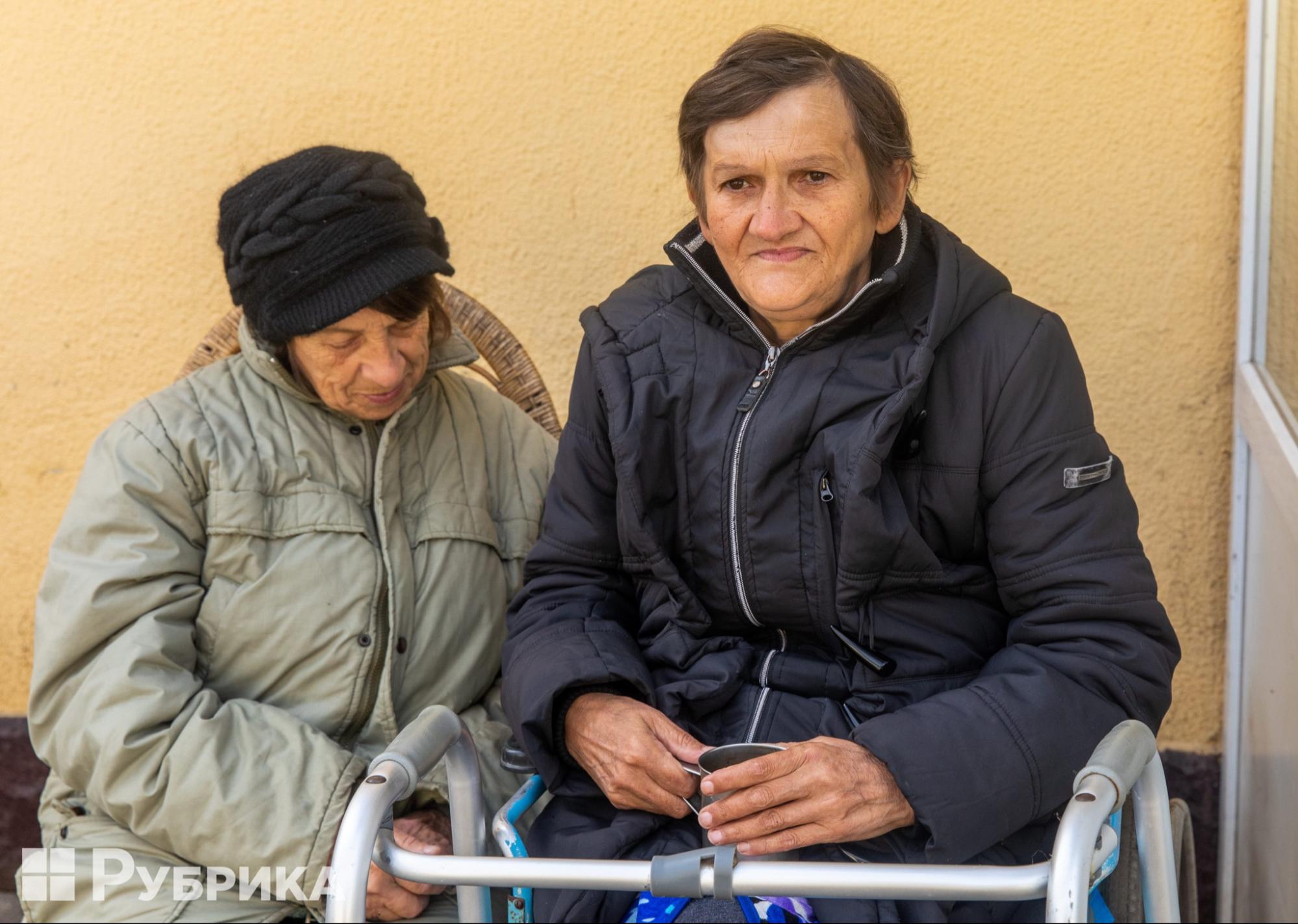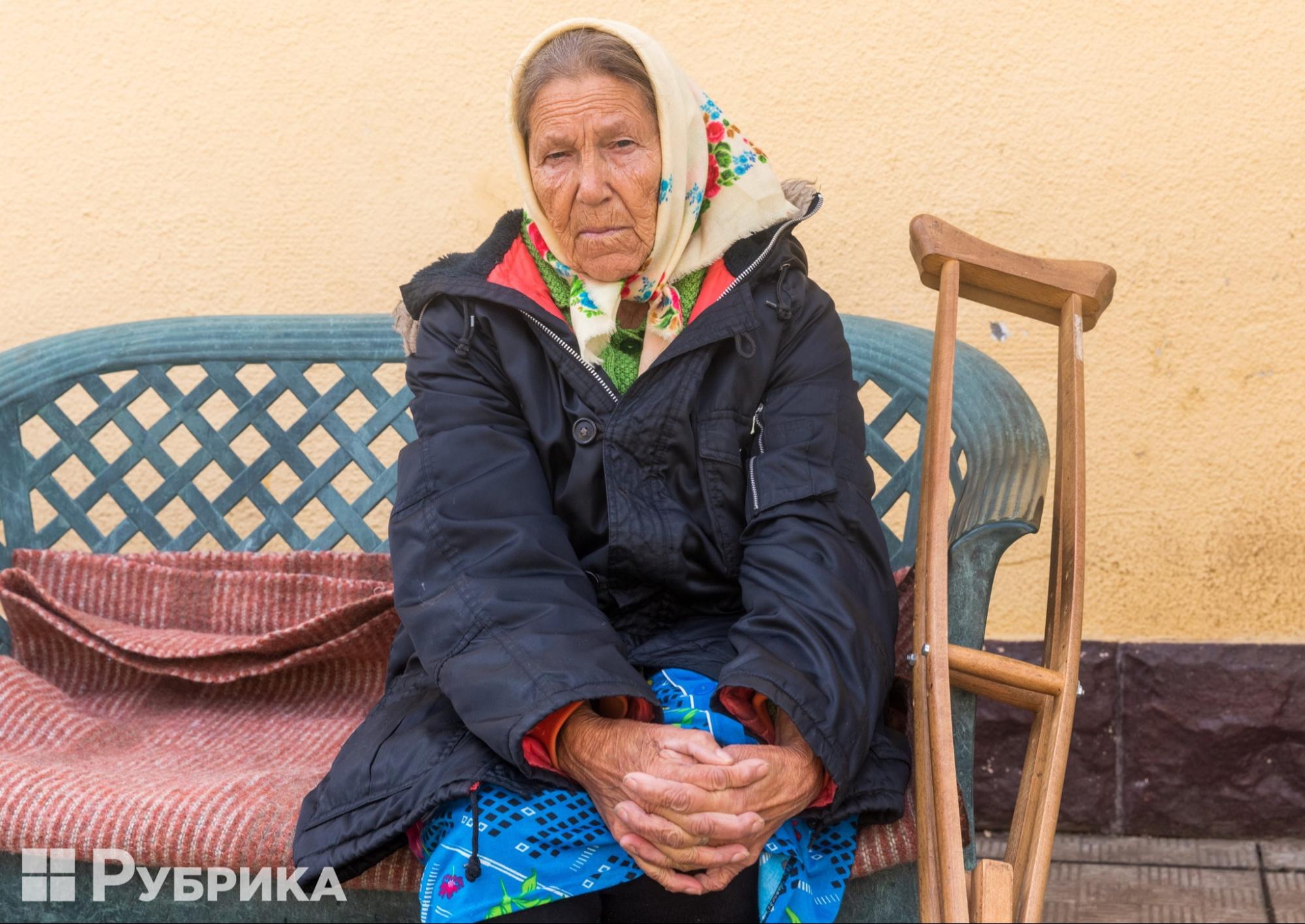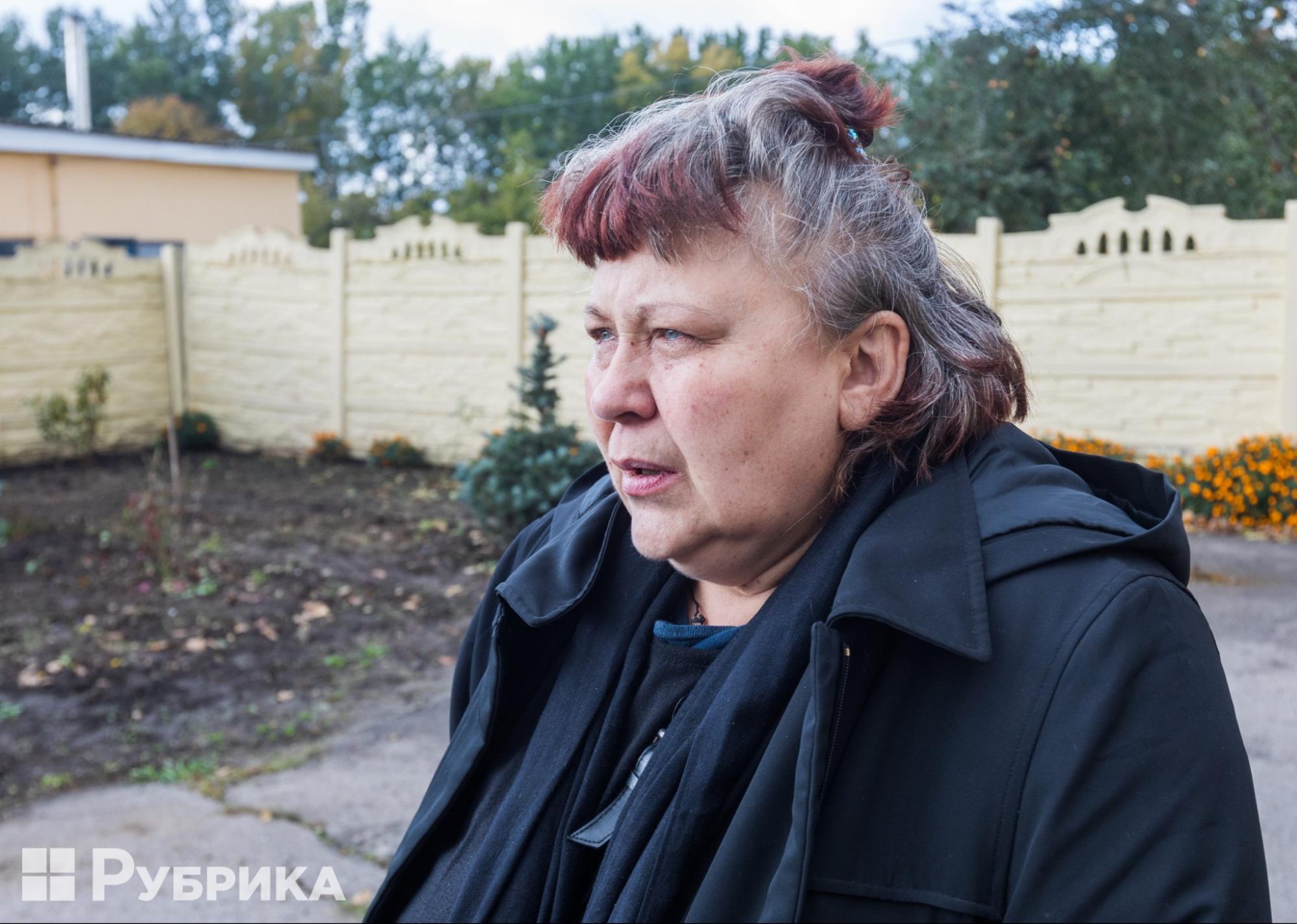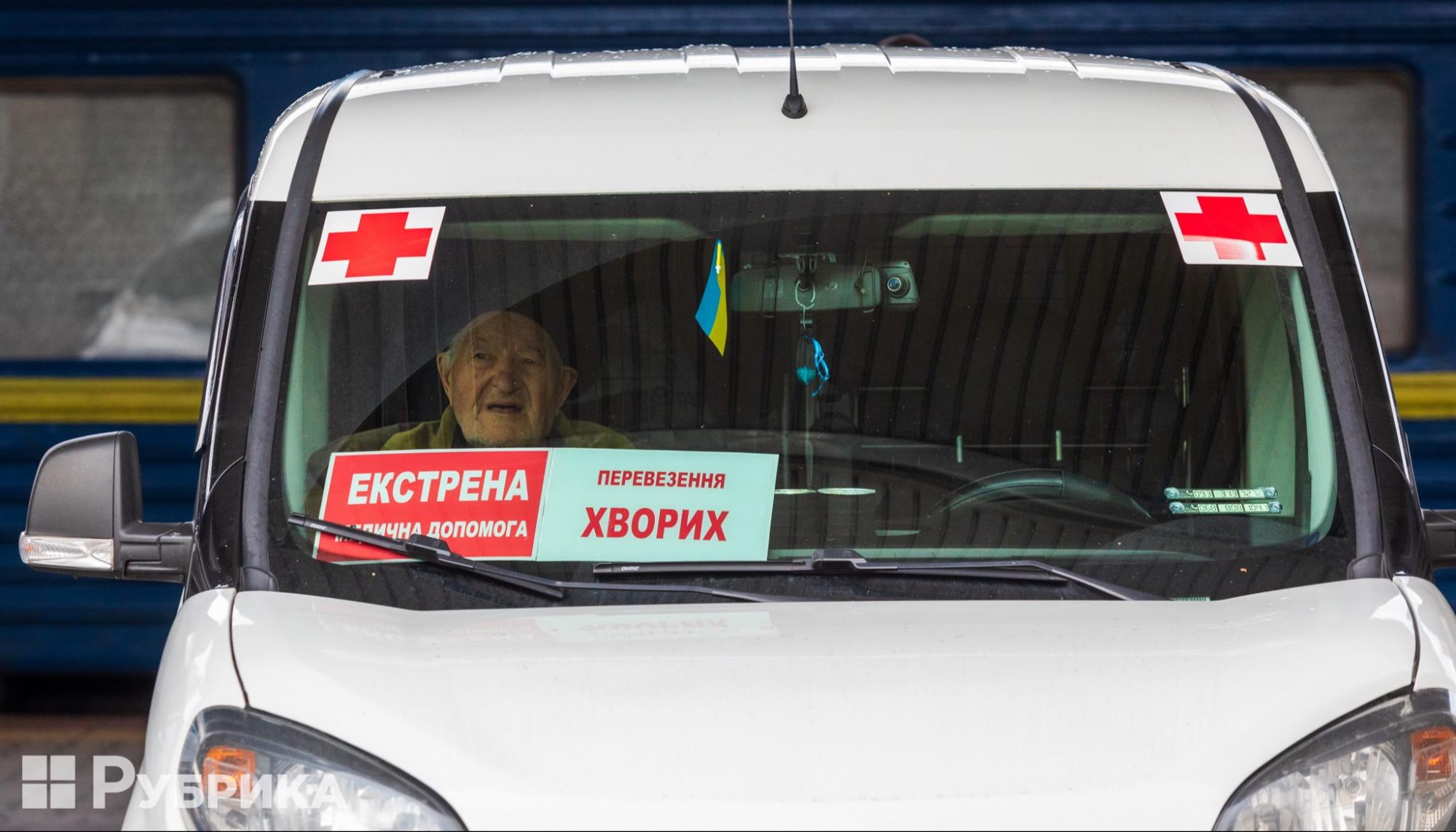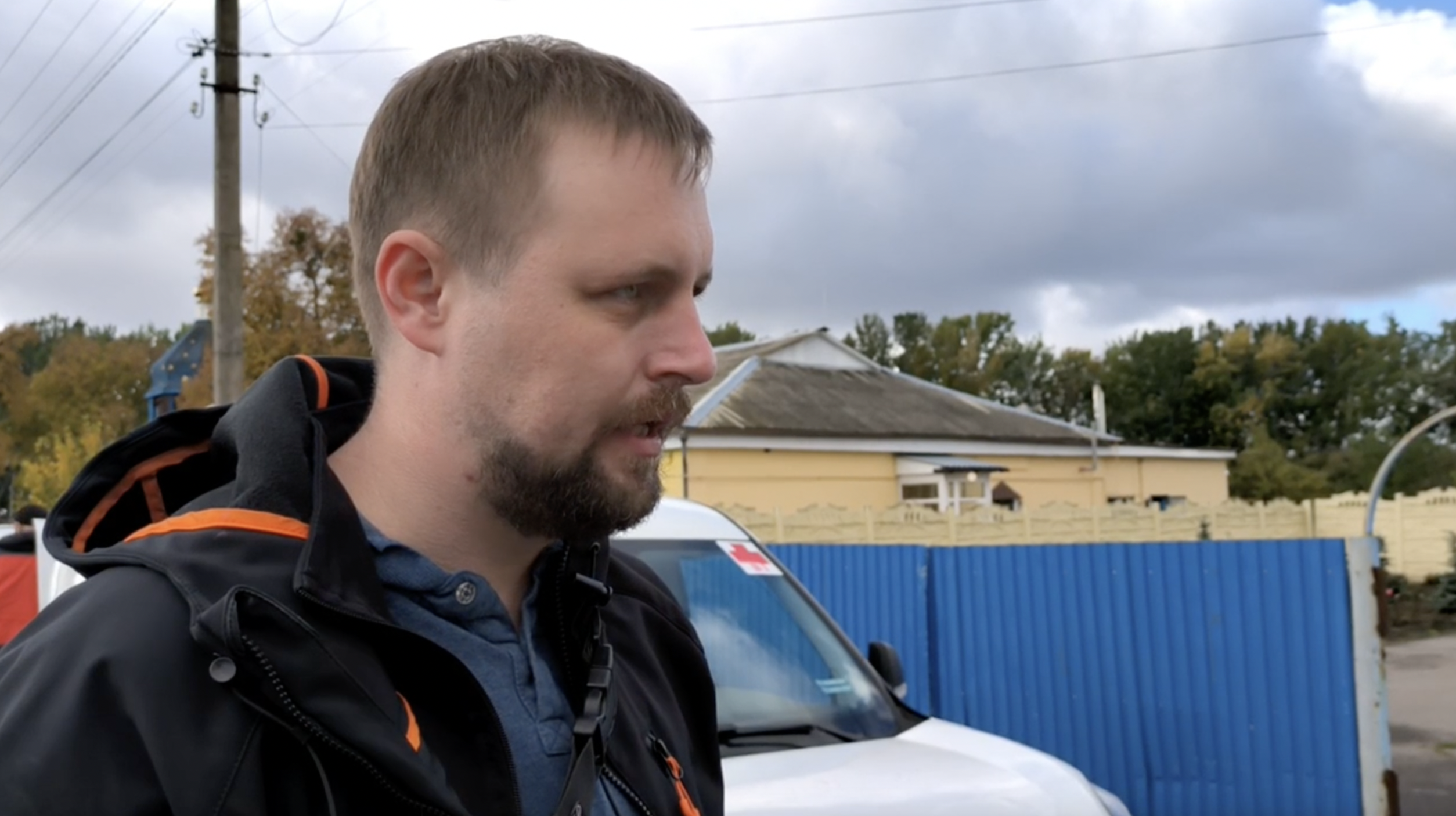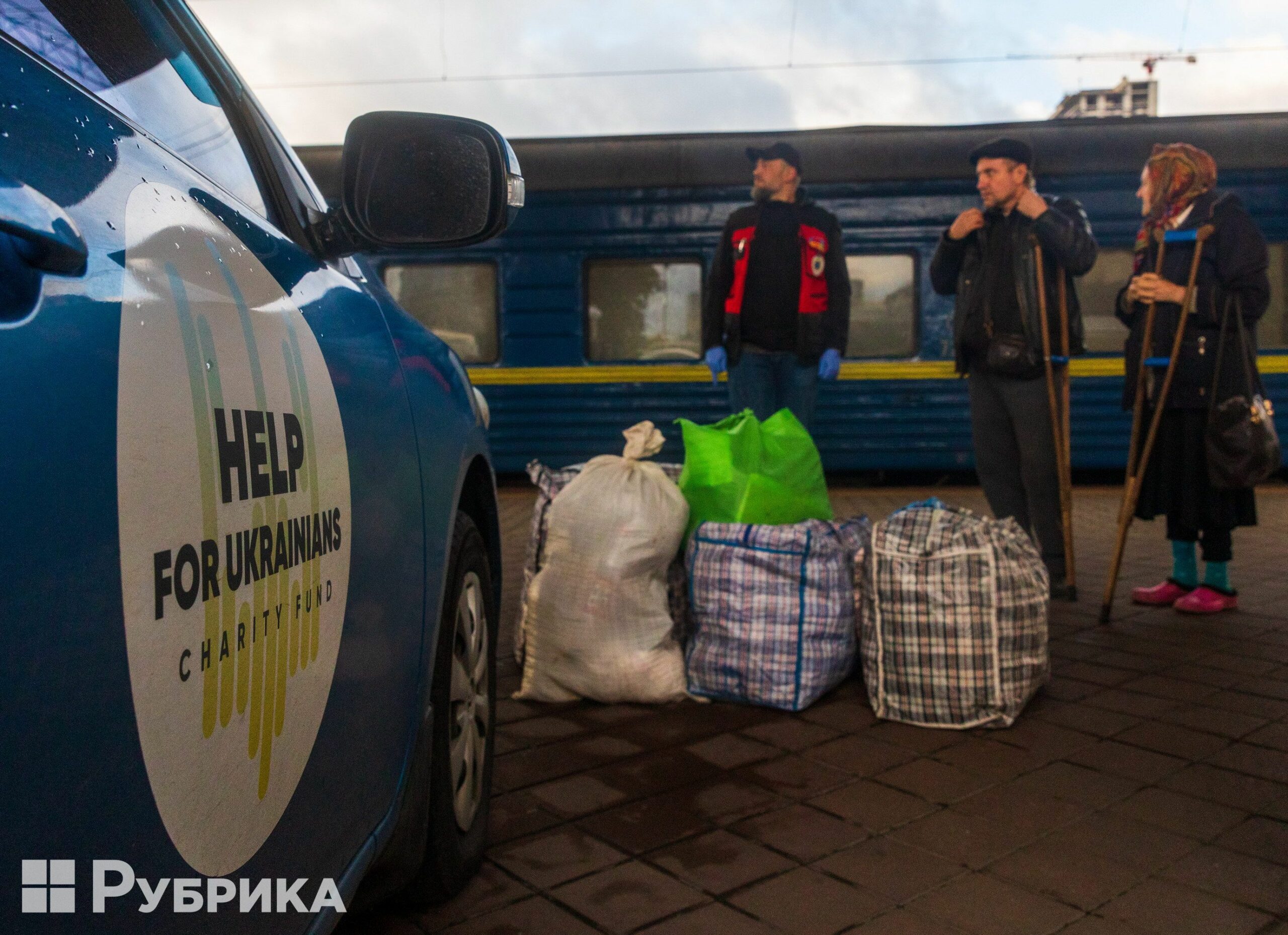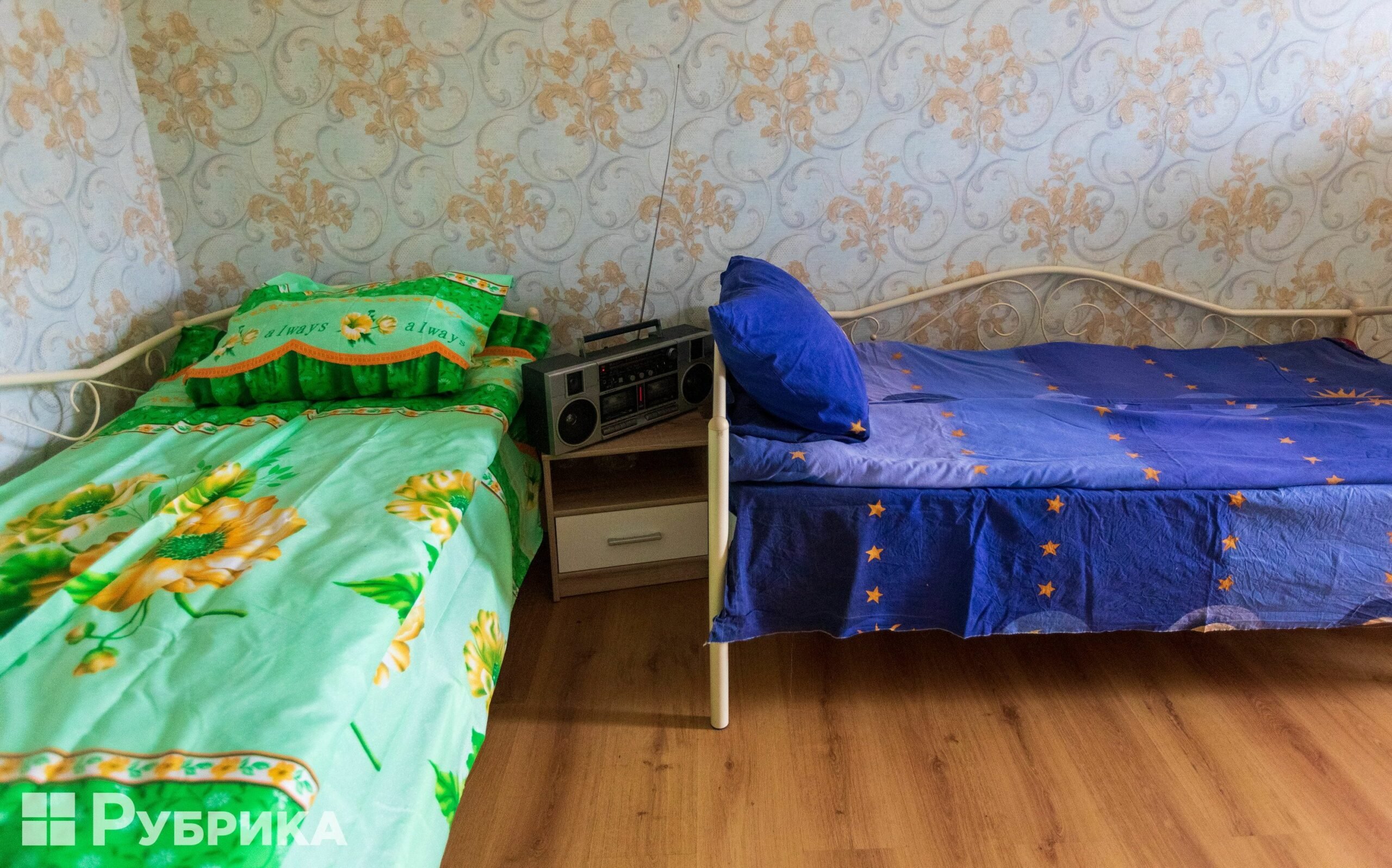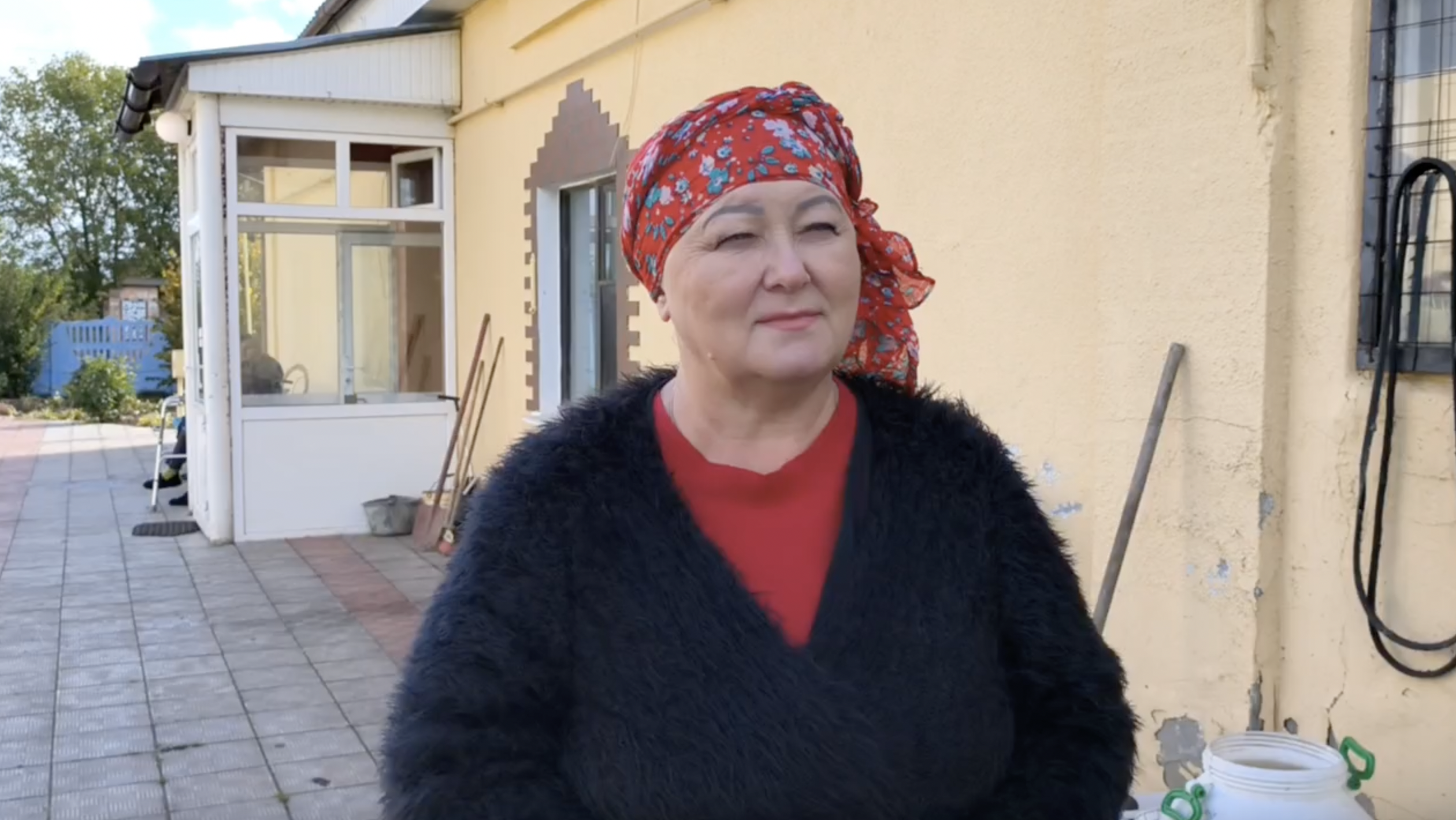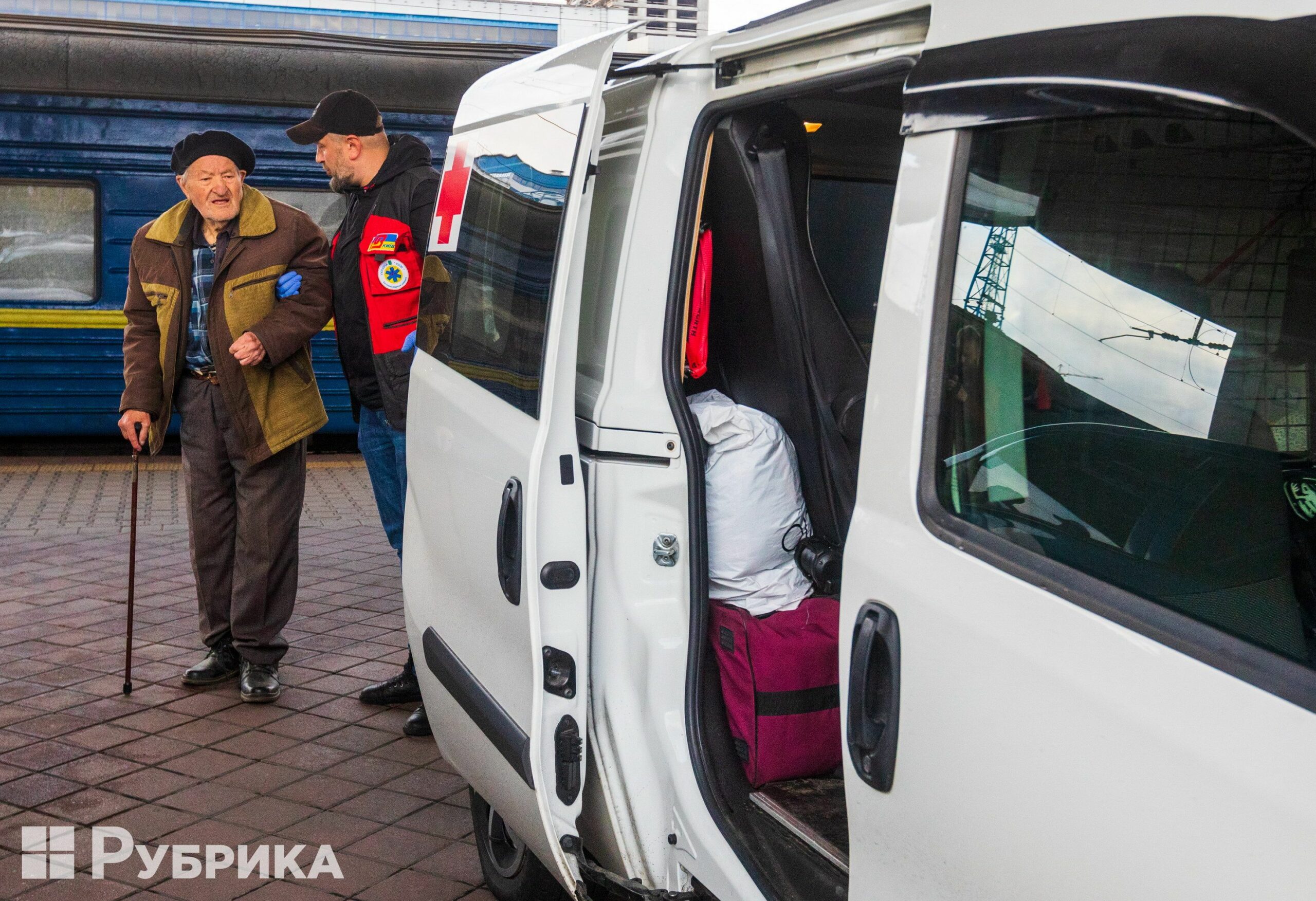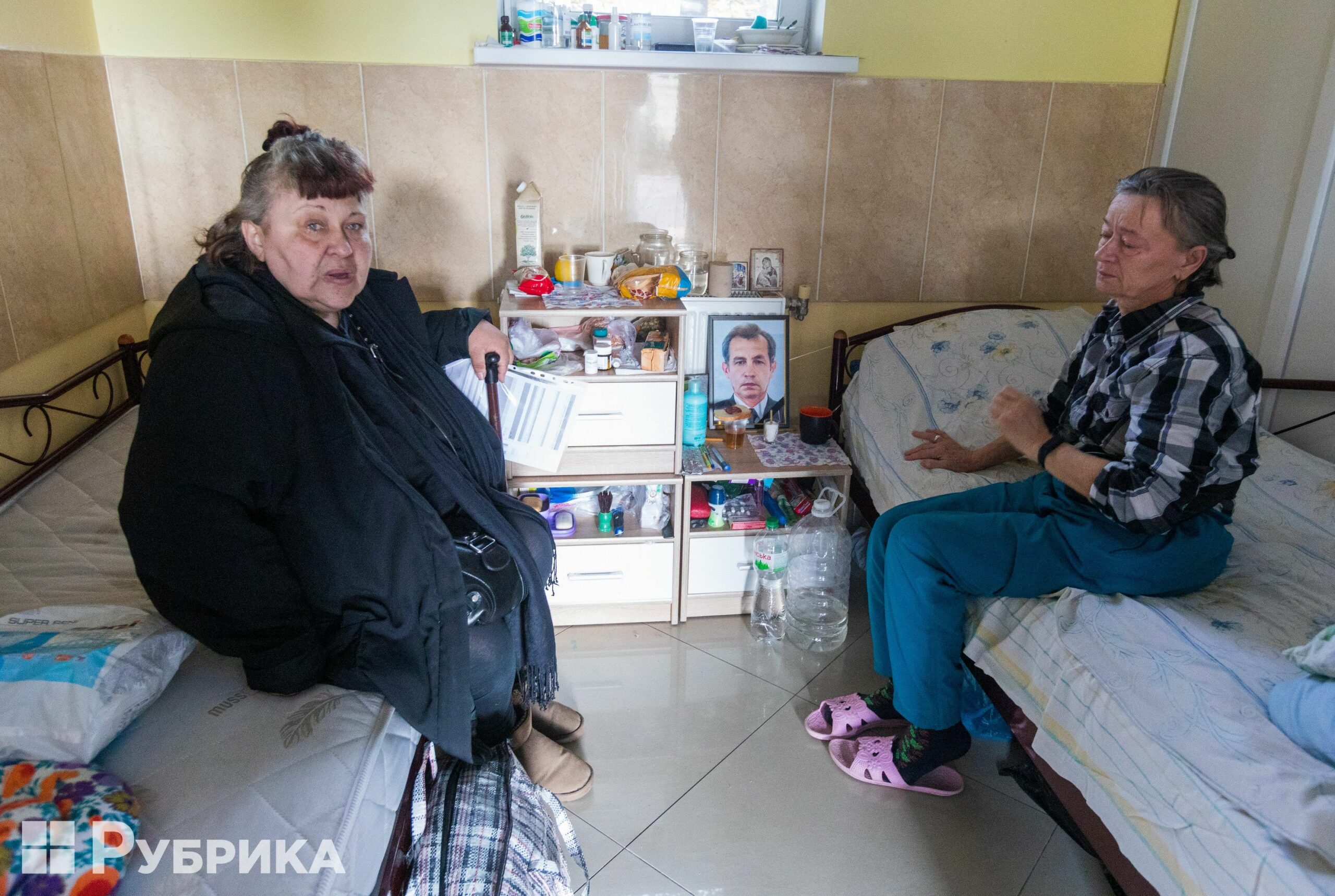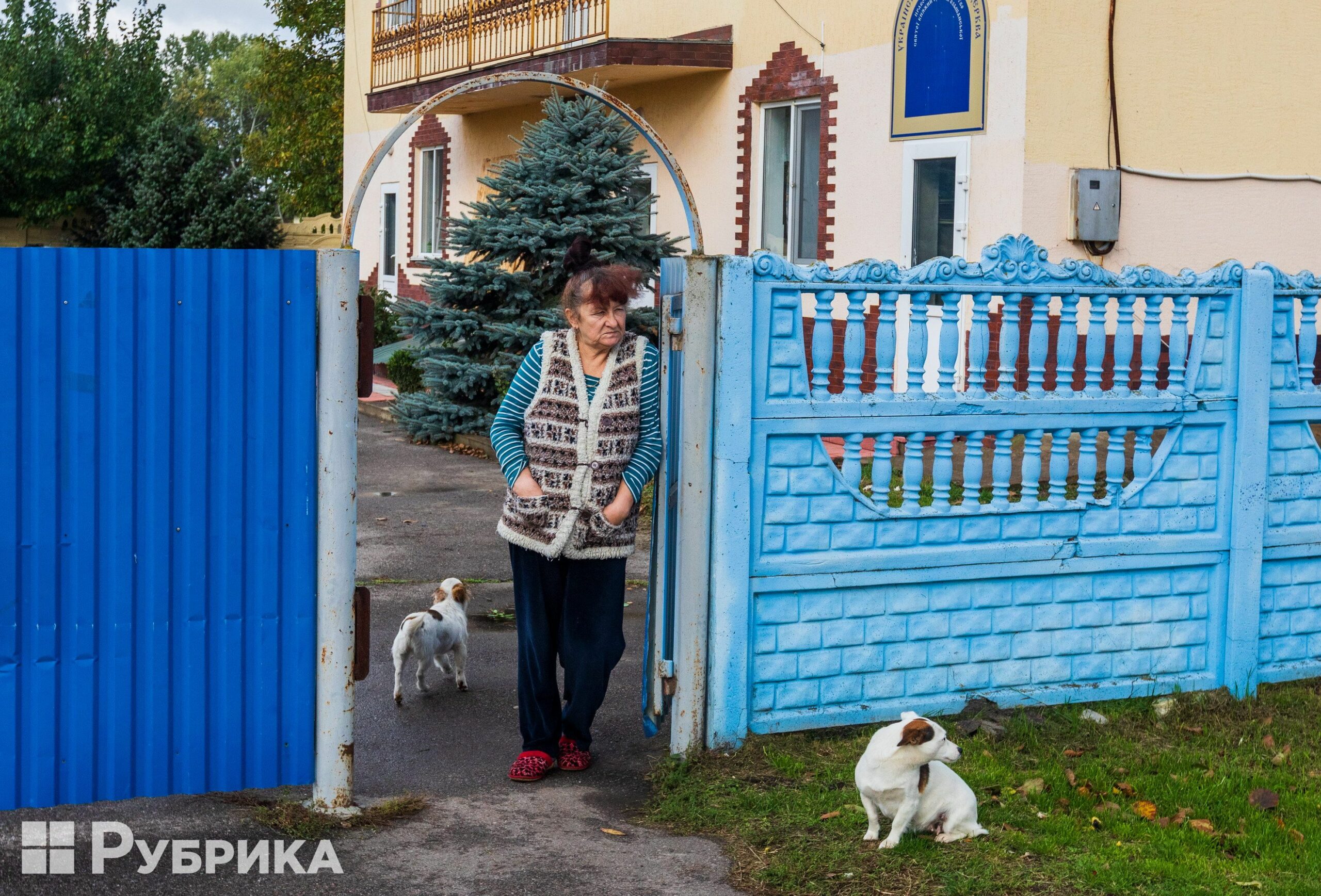
Photo: Rubryka
What is the problem?
Evacuation from the east today is not an easy task. Especially when it comes to evacuating people who cannot move on their own and need constant medical assistance; these are seriously ill people, older people, and bedridden patients who badly need help.
What is the solution?
Doctors Without Borders, Ukraine's Ministry of Health, and Ukrzaliznytsia Railways help to leave dangerous zones. First, people are taken from Kramatorsk and Bakhmut to Dnipro, then by special train to Kyiv.
After that, some stay in Kyiv, and some go to the western regions. In October, Doctors Without Borders evacuated 17 people with reduced mobility from the east of Ukraine to Germany on a bus provided by volunteers from Lithuania.


Since March, more than 17,000 people with reduced mobility have already been evacuated from dangerous zones in the east of Ukraine.
"It is difficult to hear the stories of our patients. Due to constant shelling, they are often forced to leave their homes without basic personal belongings. The only thing they have with them is the memories of their past peaceful life, rubber slippers and little clothing in which they ran out under fire," says Borys Potapov, a doctor on the medical evacuation train of Doctors Without Borders (MSF, or Médecins Sans Frontières), which transports patients from Ukraine's east to hospitals in safer locations.
Maria Strange, a nurse from Denmark, works on the train. She says that she sees many people who have suffered from the war during her work.
"I remember one elderly woman who started crying when we talked about where she was from. Explosions destroyed her house while she was in the garden. This woman had no family. She no longer had a husband and children. I don't know if it happened during the war, but she was very lonely and was going to the other end of the country."
Olha Pentsak also works as a nurse in the medical evacuation train of Doctors Without Borders. She says: "Some patients write us 'thank you' on pieces of paper and leave them in the cars after evacuation. Some even treated us with chocolate, which the volunteers had given them before the trip. They say it is important for them to do something nice for us doctors. And for us, their feedback is an indicator of our work. So, we are in our place and doing an important thing."
It is hard to overestimate their work, especially when you hear the stories of people who doctors have helped.
"Just say it louder because I'm deaf after the bombing"
This is what Liubov is asking us. The woman is 62 years old. She came by train from Siversk. She says she comes from the Sumy region but lives in Siversk, Donetsk region. This is the Bakhmut district; now, there is one of the war flashpoints. Liubov was evacuated back in June, and since then, she has been in a shelter in Kyiv. The woman recalls:
"My house was on the second floor, and we have a two-story building. The hall was bombed, and there was a hole. There are no windows. What can be done there? That's it. I don't have relatives as such, but I do have neighbors and acquaintances. They always sat in the basement, and I will not go to the basement. How? I was sitting in the house, and they were in the basement."
Liubov hardly walks. Running to the basement and then back to the second floor is difficult for her.
"The shell flew into my house. I woke up to the alarm clock, picked it up, and something blasted. So I threw that alarm clock in the corner. As I became deaf, I threw a pillow over my head. And I had a friend who stayed the night. And she brought out two such big shell fragments. The hole is huge in the hall. The window frames were shattered. The balcony is gone. And a corner in the hall cracked. I have a corner apartment. And the balcony moved down by 15 centimeters.
Then the woman realized that it was time to leave.


"Volunteers came, they said, why are you sitting here? Let's go. They transported people by bus and then by car. And here it is, great, terrific. They met us well—very good people, good staff. I want to go home, of course! And who doesn't want to go home? And when can I go home if there is no gas, electricity, or water? There is nothing. They say they [russians] are bombing Siversk. This is the fourth time they have bombed there. What are they bombing there? Siversk is not a big city. But they are still bombing. Very hard, very hard. And I want to go home. Thanks to the people who take care of us. We are washed and fed and everything."
"A native home is a native home"
Halyna, 70 years old, is a woman from Kramatorsk. She says the doctors evacuated her a long time ago in the summer. All because of the danger at home:
"The russians bombed everything. There is no gas, and there is nothing there. I don't know if the apartment is whole or not. They don't tell us anything."
The woman does not remember the shelling; her memory fails. But maybe it's for the better because memories of such events can traumatize again and again. Halyna says she is grateful to the volunteers who took her and brought her here, where she is safe and has someone to take care of her. And yet, she misses home.
"I want to go home, and God knows whether it is alive or not. I really want to go home. And who doesn't want to? Native home is native home. I want to, but God knows how it will turn out. Will everything be fine? Time will tell…"
And Anzhela Naumenko left Bakhmut only in October, and before that, she stayed in the front-line town for several months. The woman says she lived on the eighth floor in a city with no electricity or water and was constantly under fire; it was terrifying.
"Many people remained under the rubble. The emergency service cannot take them out because they are heavily bombarded. More than half of the city is gone, bombed. I did not think that Bakhmut would become a front-line city. And you see how it turned out. putin's brains are out of place. This is how he mocks people and deprives everyone of a roof and life. Especially children, small children."
"Every day we deliver, deliver, deliver"
The shelter, which currently houses residents with reduced mobility evacuated from Ukraine's east, is provided by Help for Ukrainians. The founder of the fund, Dmytro Maksymovych, says that the central area of work is the evacuation and resettlement of disabled people from the east of Ukraine.
"We are in the shelter that we provided with everything needed to accommodate people here. As of today, we have evacuated more than 50 people. The first evacuation to this place was, if I'm not mistaken, sometime in July. Then we deliver, deliver, deliver every day. We are building up, buying beds and medicines. We do everything to expand constantly. The shelter director goes to meet us, and we constantly bring people here who do not have their own homes, have been bombed, and have suffered from the war. Until the war is over, people can live here and stay as long as they need. No one is expelling them from here. We fully provide medicine, food, and clothing."
Dmytro Maksymovych adds that the fund can do this thanks to the support of another fund—Nova Ukraine.
"Also, we are helped by ordinary people who donate so that we can evacuate people and buy food and hygiene products specifically for the shelter. Now, for example, we brought humanitarian aid in our car. The Czech Republic handed it over to us. The most important thing we need right now is hygiene products. These are diapers for adults in L and XL sizes because about 35 bedridden people do not move at all."


Before the full-scale war, the place where the residents of the eastern regions now found refuge was also a refuge. Then there were 22 people here. Currently, it has been expanded, and in total, more than 60 evacuees are now staying here. Dmytro Maksymovych explains:
"Our main work area is bedridden people, people with limited mobility, and people with disabilities. Some of them come here without documents at all. We restore their documents and issue disability. Because after the full-scale war began, many people received disabilities, and they simply did not have the opportunity to register their disability after the start of the war. These are people from the east of Ukraine—Bakhmut, Kramatorsk, Siversk, Avdiivka, Kostiantynivka, and Sloviansk. All cities that suffered from russian aggression."
In the shelter, evacuees receive not only a roof over their heads but also medical assistance, necessary things, and, last but not least, important communication.
Halyna Makova, the manager of the shelter, says:
"The first week is tough for people who come here. They should all be hugged, comforted, and kissed because they are the same age as our mothers and grandmothers. And we treat them that way. We try to make them feel at home. We try to have them outside more when it's warm. We have a garden here, and they walk there. All is done to relieve this stress. Some have been with us for over two months, so they are already like family. They worry about us, and we worry about them. We are like one family. We need to create an atmosphere of inner kindness that they feel at home."
Newsletter
Digest of the most interesting news: just about the main thing












